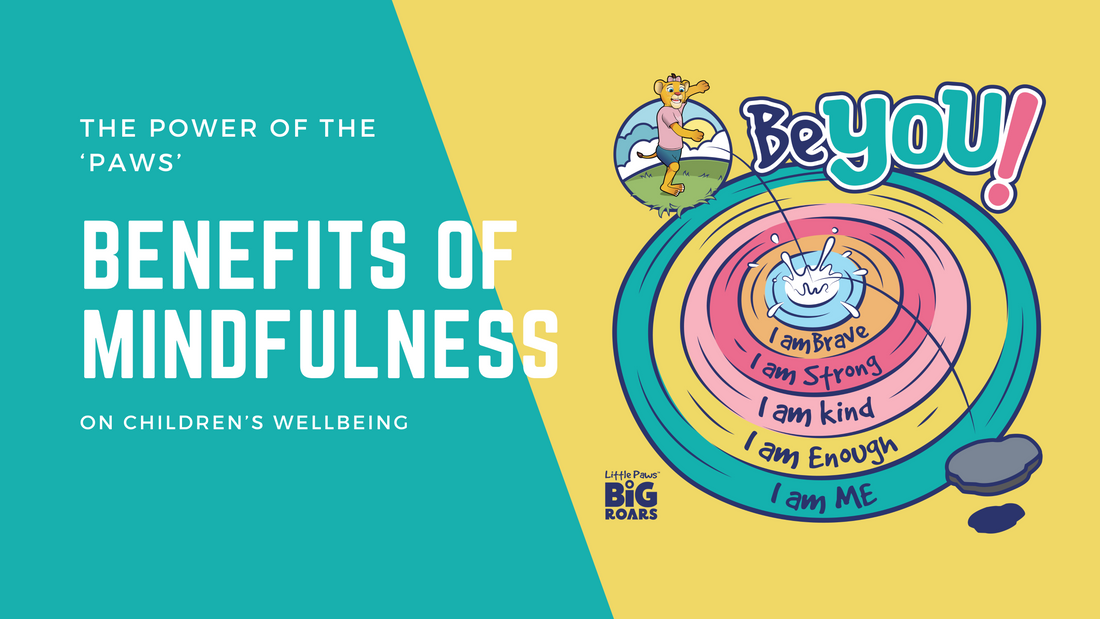In a world where the mental health of our children is increasingly under the spotlight, the growing body of research supporting mindfulness as a powerful tool for improving wellbeing is a beacon of hope. Recent studies, including a groundbreaking project led by Dr Joe Dispenza and Dr Peta Stapleton, provide compelling evidence that mindfulness can have a profound and positive impact on children’s emotional and behavioural health.
Groundbreaking Research: Mindfulness and Meditation for Kids
One of the most significant studies on mindfulness in children, facilitated by Dr Dispenza and Dr Stapleton, involved nearly 900 children aged between 4 and 11[1]. The study was divided into two groups: one group consisted of children aged 4-8, comprising 552 students, while the second group included 287 students aged 9-11. This extensive study stands as the largest of its kind, focusing on meditation and its effects on children.
Over a 10-week period, the children participated in daily meditations tailored specifically for their age groups. The meditations were designed to introduce the children to concepts such as mindful breathing, affirmations, emotional awareness, and self-regulation. The results were remarkable. Across both age groups, the study found that just a few minutes of daily meditation led to:
- Increased happiness and school performance in 4-8-year-olds.
- Enhanced emotional awareness in 9-11-year-olds.
- Improved self-regulation across all age groups.
- A decrease in emotional and behavioural difficulties in both age groups.
These findings underscore the transformative power of mindfulness in children, demonstrating how even brief, daily practices can lead to significant improvements in emotional and behavioural health. By teaching children to become more aware of their emotions, to regulate their responses, and to focus on positive affirmations, mindfulness can help them develop the tools they need to navigate life’s challenges with resilience and confidence.
The Power of the ‘Paws’: Mindfulness in Action
At Little Paws, Big Roars, we are deeply inspired by this research and the potential it holds for creating a brighter future for our children. Our mission is to harness the power of mindfulness and embed it into the fabric of children’s lives from an early age. This is why we have developed our lovable cubs and mindfulness products, such as our Mindfulness Strategy Cards, with fun, bright, and engaging characters designed to introduce children to the concept of mindfulness before they can even talk.
These cubs serve as anchors for children, reminding them of the safety and support they carry within themselves. Through the narratives and guidance provided by these characters, children are encouraged to believe in their limitless potential, to embrace their emotions, and to develop the lifelong tools they will carry into adulthood. The cubs grow with the children, helping them learn valuable lessons in emotional intelligence, self-regulation, and mindfulness that will serve them throughout their lives.
Nurturing a Mindful Generation
The recent findings from the study facilitated by Dr Dispenza and Dr Stapleton provide further support for the work we are doing at Little Paws, Big Roars. By integrating mindfulness into children’s daily lives, we can help them cultivate the skills they need to thrive in a complex world. Mindfulness is not just a tool for managing stress and anxiety; it is a pathway to a more conscious, creative, and emotionally intelligent generation.
Imagine a world where children use mindfulness to become more aware, more compassionate, and more empowered. The possibilities are endless, and it all begins with the simple act of introducing mindfulness into their lives.
At Little Paws, Big Roars, we believe in the power of the ‘Paws’—the power of mindfulness to transform children’s lives and set them on a path to greater wellbeing. As we continue to develop and refine our products, we are committed to creating a world where every child has the opportunity to grow up with the tools they need to navigate life’s challenges with confidence and joy.
A Call to Action
Although further studies are required to solidify and quantify the benefits of mindfulness on children’s wellbeing, the existing research is already compelling. There is enough evidence to show us that mindfulness can have a positive impact on children’s mental and emotional health. Let’s not wait for the data to be absolute, which may take years to accumulate. Instead, let’s ensure that mindfulness becomes a learned skill and an essential tool for children, just as English and Mathematics are.
By integrating mindfulness into our children’s lives now, we can provide them with the tools they need to navigate their emotions, manage stress, and develop resilience. The power of the ‘Paws’ is real, and together, we can help our children grow into the conscious, compassionate, and capable individuals they were born to be.
[1] “Let's keep calm and breathe”—A mindfulness meditation program in school and its effects on children's behavior and emotional awareness: An Australian pilot study - Stapleton - 2024 - Psychology in the Schools - Wiley Online Library

